 After football and other sports, the hottest topic of conversation between friends, family, colleagues and even complete strangers on social media, is on the subject of politics.
After football and other sports, the hottest topic of conversation between friends, family, colleagues and even complete strangers on social media, is on the subject of politics.
Interest reaches fever pitch during major elections such as the General Election in the UK and the Presidential Elections in the United States. Outside of these however, the UK public also keeps a keen eye on budget announcements, cabinet reshuffles, local elections and increasingly, MPs Heading to the jungle to take part in I’m a Celebrity.
Whatever your political persuasion, the antics and actions of those in the corridors of power are never far from our thoughts. As a result, there is often a wide range of betting markets surrounding the subject, whether it’s who will win the next election or how long our current Prime Minister will remain in charge. Here we’ll highlight the best promotions and offers surrounding politics and election betting when they become available.
Latest Politics Betting Offers & Promotions
Note: Most offers will be available during major elections such as the general election in the UK and and the presidential elections in the USA.
How to Bet on Politics
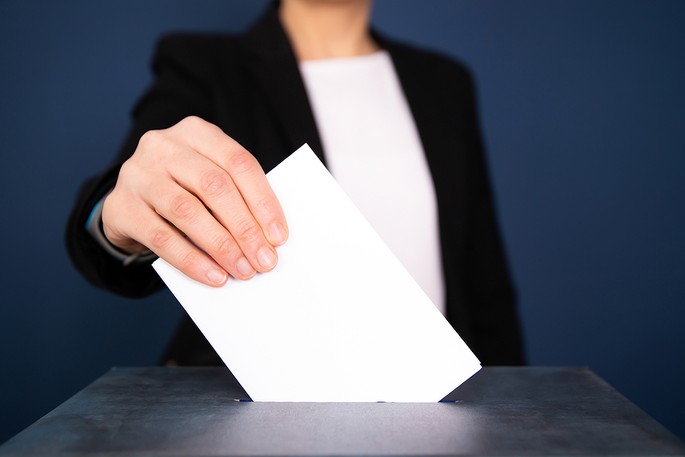
When it comes to politics, betting can be a mildly complicated affair. There are plenty of different wagers that you can place, depending on both the elections that you’re betting on and what it is that you’re hoping will happen. In the United Kingdom, for example, there are numerous things that might be worth placing a wager on, including the outcome of by-elections or the next Prime Minister. In the United States of America, you can obviously bet on who will win the presidential election, but you can also look at the likes of the outcome of House and Senate races.
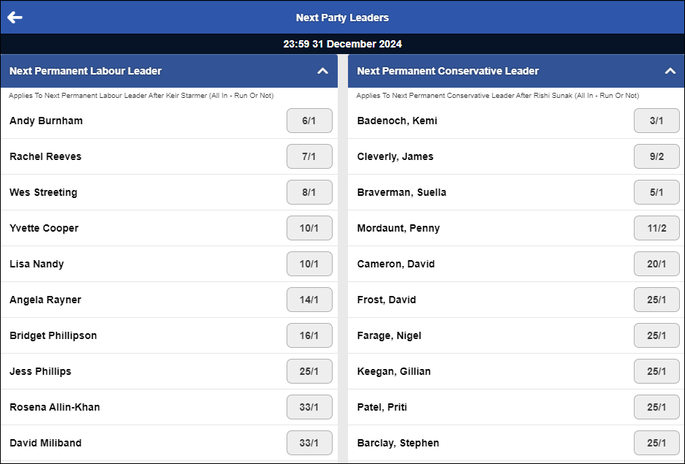
You can read about the British and American governmental elections in more detail elsewhere on this site, so here we’re looking more at the kind of bets that you can end up placing. When it comes to betting on elections, there are numerous different bet types that are available to you. These include, but are not limited to, the following:
- General Elections
- Presidential Elections
- Referendums
- Party Leadership Contests
- Next Prime Minister
- Overall Vote Share
- Which Party Will Govern
- Gender of Next Leader
- Who Will Win the House
- Who Will Win the Senate
Obviously the exact bets that you’ll place will be largely dependent on which country it is that you’re looking to place your wagers on, with politics in the United States working quite differently to how things work in the United Kingdom. It is always recommended that you have some idea what it is that you’re betting on before you place your wager, else you’re much more likely to blindly stake your money.
When it comes to betting on elections, the most simplistic wagers are often the ones you will be most tempted to bet on. In the UK, the bet that is the usual one that punters will look for is ‘Most Seats’, which is simply a wager on which political party will win the most seats in the election. This isn’t the same as the party that gains an overall majority, however. In the United Kingdom there are 650 seats, so a party needs at least 326 to have an overall majority. A party could win 310 seats, which would be the most if the rest are split between the remaining parties, but not have an overall majority.
In the United States, election betting is a little bit easier. The most popular bet tends to be on the person that will become president, so the outcome is clear. Whilst you can obviously place other bets, it is a simple enough wager that dominates most of the thinking around election time. The trick is to be aware of what the groundswell of opinion is saying, rather than looking at the betting markets. In 2016, for example, Donald Trump was still considered to be an outsider when it came to the presidential betting, so you could have got odds as high as 6/1 for him in the week or so before the election itself.
Understanding Elections
If you’re going to place a bet on an election then one of the best things that you can do is to ensure that you understand how the election system of the country that you’re looking at actually works.
United Kingdom System of MPs
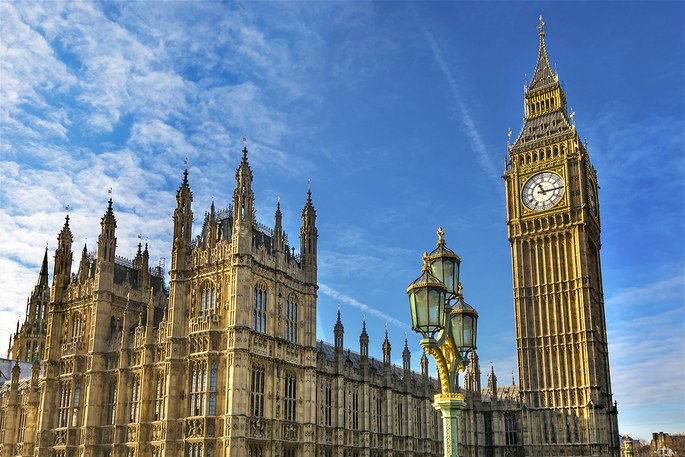
The Houses of Parliament are located within the Palace of Westminster
In the United Kingdom, we have a system of MPs, who get elected to represent their local constituency for their party and take up a seat in government. When these seats are filled, the party that has the most will be in government. If there is no overall majority, parties can work alongside others in what is known as a coalition, which is when the parties agree to work with each other to govern.
One of the common misconceptions when it comes to British politics is that people vote for the Prime Minister. In reality, they vote for the party that they wish to represent them and then the leader of that party, if it wins an overall majority, or the leader of the more dominant party, in the event of a coalition being formed, takes up the office of Prime Minister. It is why parties can change their leader, thereby changing the Prime Minister, without the need to hold a new election. Normally, each constituency will have several options for you to vote for for that person to become your local Member of Parliament.
If the largest party does not have an overall majority, they don’t have to form a coalition if they don’t want to. Instead, they can choose to govern with a minority government. This means that they will need to get support from other parties when they want to pass any sort of legislation in order to make it into law. In order to get that support, they might well have to make promises to support that party’s own plans in the future, or else make compromises on the bill that they are trying to pass. You can place a bet on whether there will be a hung parliament, which is when there is no overall majority.
United States Electoral College
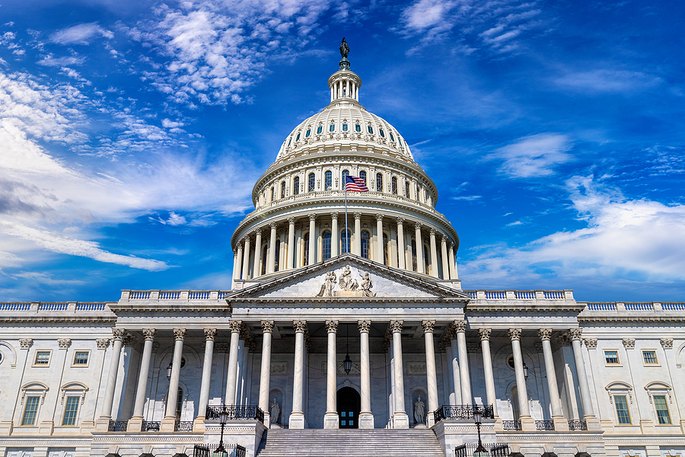
Congress is held at the Capitol Building in Washington, D.C.
In the United States of America, the system is similar to the British one, insomuch as you are not voting for the President directly. Instead, people vote for the people, known as electors, that will make up the Electoral College. In this instance, the ‘college’ is simply an organised body that are engaged in a common task, rather than having any relation to education. Each state is given a certain number of electoral votes, which tends to be based on the state’s population size. It is fair to say that the American system seems a lot more complicated than the UK system if you don’t know how it works.
Technically, voters vote for the electors for their state. The electors then cast their votes on behalf of the people of their state, going with the majority for their party. In other words, voters are voting for the electors who will then elect the President. In order for a party to win the election and therefore see their candidate installed as President, they need to win an overall majority of electoral votes. There are 538 electoral votes on offer, meaning that a party needs to win 270 in order for their leader to become President. Theoretically, an elector could ‘go rogue’ and not vote for the person that won the overall majority.
In fact, this has happened many times over the years, but it doesn’t tend to effect the overall result. In 2004, an anonymous elector in Minnesota cast their vote for John Edwards when they should’ve cast it for John Kerry. These so-called ‘faithless electors’ are not bound by law to follow the popular vote in a large number of states. Electoral College votes are not linked to the votes for Senate of Congress, which adds further confusion into the mix. Similarly, there are two states where the party that wins the popular vote doesn’t get to send all of its electors to the state capital.
The Popular Vote

People vote for who they want to win the election. Because of the nature of the way the systems work in the United States of America and in the United Kingdom, it doesn’t always work out that someone will win the election having garnered the most votes overall. California, Texas and Florida have the most electors in the US, for example, with 55, 38 and 29 respectively. They could vote in a way that means that several other states become essentially irrelevant. In 2016, Donald Trump won 304 electoral votes but actually lost the popular vote by about three million.
In the United Kingdom, the way in which the voting works means that political parties do not get representation in accordance with the share that the party got in the popular vote. There could be a huge number of voters for a party in one area the country, but they only get to send a specific number of MPs to parliament, for example. Meanwhile another party could have fewer voters overall but spread out in such a way that they are able to send more MPs to parliament than the larger party. It is why many believe that proportional representation is a fairer way of voting, but it is not yet in place in the United Kingdom.
Major Elections
Regardless of whether you’re talking about the United Kingdom of the United States of America, there are often smaller elections that happen throughout the year. In the UK, for example, a politician choosing to step down from their post might result in a by-election. This is because the people voted for the specific person, so if they are either sacked by their party or else resign their post, there is no longer a candidate in place who was voted for by the people. The result of this is that another mini-election is held to choose the new candidate for the area.
Whilst such minor elections happen on a semi-regular basis in different countries, the main events that bookmakers and most punters are interested in is the major elections. Different countries have their own major elections that work in a way so as to elect the leader that will be in charge of the party or the country, depending on how it works. It is just as important to understand the likes of proportional representation versus first-past-the-post when it comes to betting on elections as it is to know how the elections themselves will work, so make sure you have a good sense of the exact election process in place for the country or area you’re betting on.
UK Elections
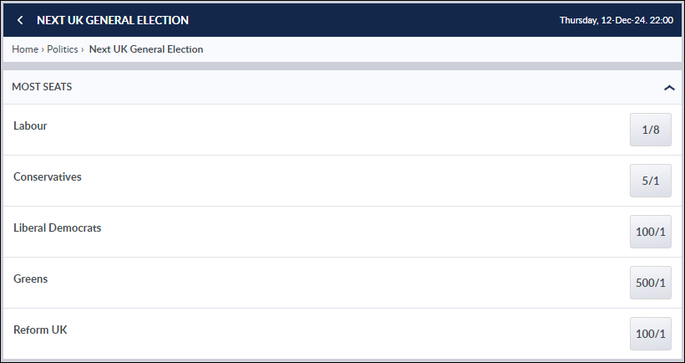
We have covered the way that UK elections work in more detail already, not forgetting the fact that there is an entire page dedicated to elections in the United Kingdom, but there is no question that it is the most significant election type in the UK. Elections in the UK result in the government being chosen for the next five years at most. Whilst elections can be called early, the very latest that they can be held is five years later, which is in accordance with the Fixed-Term Parliament Act of 2011. They will only be held earlier if the Prime Minister instructs the monarch to do so in accordance with their Royal Prerogative.
US Elections
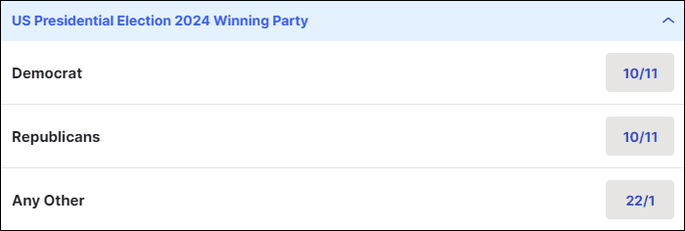
In the United States of America, the presidential election process takes place every four years. The election takes place on the first Tuesday after the first Monday in November. Candidates register with the Federal Election Commission that they plan to run for president in the spring of the year before an election. The primaries and caucuses then take place in the summer, with nominating conventions typically held in July to September in order for each party to decide upon their leader who will become President if the party wins the election.
Referendums
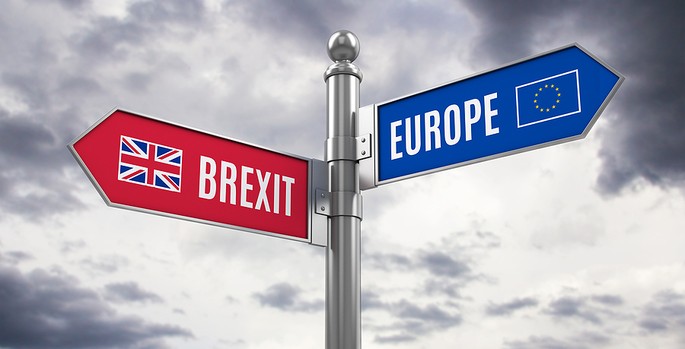
The other major election-type that is worth telling you about is a referendum. Sometimes these can be on seemingly innocuous topics, whilst on other occasions they can be of huge importance. The best example of this is the Brexit referendum, in which the United Kingdom chose to leave the European Union. Usually, referendums works by each vote being counted individually. This can sometimes lead to quite tight results, such as when Leave won the Brexit vote by 17,410,742 to 16,141,241, or 51.9% to 48.1%. It was a fractious result that caused many to suggest that referendums should require a clearer margin of victory.
